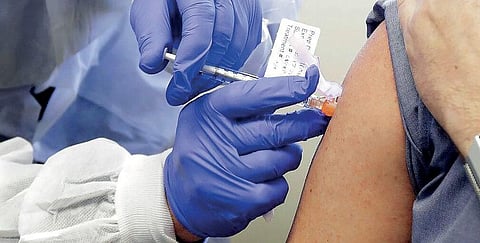

THIRUVANANTHAPURAM: While the state government has been lamenting the shortage in the supply of Covid vaccines by the Centre, the Kerala State Drugs and Pharmaceuticals Ltd (KSDP) — billed as the only state government-run pharmaceutical public sector undertaking (PSU) in the country — is yet to make an earnest effort to produce Covid vaccines.
The PSU, which is known as the ‘kitchen of the health department’, has been on a mission to supply around 160 varieties of medicines to the Kerala Medical Services Corporation Limited (KMSCL) and markets outside the state. Though the company made an attempt last year to manufacture hydroxychloroquine (HCQ), an old and inexpensive malaria drug that was used to treat Covid patients in the initial days, the initiative ran into rough weather after the price of a key HCQ ingredient went through the roof.
Though it submitted a request recently to the state government to upgrade its facility and produce Covid vaccine after securing the necessary approval from the Centre, nothing has come out of it. A senior officer with the PSU said vaccine production can be launched in a few months should the facilities be upgraded.
However, K J John, the drugs controller and licensing authority-in-charge, said: “For the time being, the PSU is incapable of meeting the standard set by the vaccine manufacturing labs for producing Covid vaccines. The process of developing and manufacturing viral vaccines involves several steps including the monitoring of the viral load throughout the process and its standardisation and validation. In the current scenario, KSDP will not be able to produce vaccines.”
Started in 1974, the PSU had ceased operations in 2003 and faced a huge crisis after the implementation of the revised good manufacturing practice (GMP) standards for the pharmaceutical industry in India in 2006. But it regained strength after launching a betalactam plant in 2011 adhering to the current GMP to produce antibiotics. That was followed by the launch of an advanced laboratory with NABL accreditation and a dry powder injection plant in 2017.
The state government had also restructured its loan amounting to Rs 121.66 crore, announced in the 2018-19 budget, by converting the bad loan as state equity by writing off interest and penal interest. That helped the PSU bounce back. The company — which clocked a loss of Rs 4.98 crore in 2015-16 and Rs 4.27 crore in 2016-17 — returned to the track of growth by registering a profit of Rs 2.12 crore in 2017-18 fiscal.